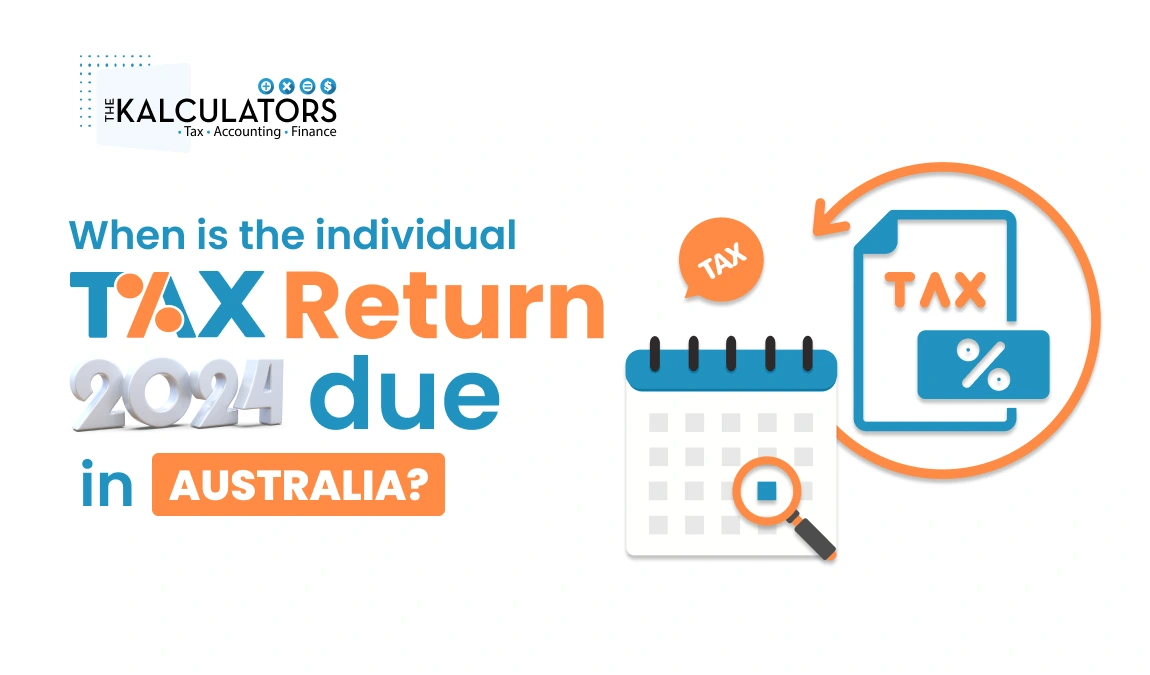Maximizing Tax Deductions in Australia: Tips and Tricks for the Upcoming Tax Year
Maximizing Tax Deductions in Australia: Tips and Tricks for the Upcoming Tax Year
Blog Article
Usings a Tax Return: Unlocking Possible Cost Savings and Making Certain a Larger Tax Refund
The income tax return acts as an essential instrument for people seeking to maximize their economic outcomes, providing many methods for possible financial savings and boosted refunds. By leveraging credit ratings and deductions, taxpayers can strategically minimize their gross income and enhance their general monetary standing. Nevertheless, the intricacies of tax obligation guidelines and the ever-evolving landscape of tax obligation regulation demand an extensive understanding of offered alternatives. What are the essential strategies that can be used to ensure that taxpayers take advantage of these advantages? The response may reveal greater than simply financial gains.
Comprehending Tax Reductions
Numerous taxpayers may locate themselves overwhelmed by the intricacies of tax obligation deductions, yet understanding these crucial elements is crucial for optimizing prospective cost savings. Tax reductions reduce gross income, therefore reducing the total tax obligation for businesses and people. Acquainting oneself with the numerous kinds of deductions readily available can considerably boost one's ability to enhance tax returns.
Deductions can be categorized into itemized and basic deductions. The basic deduction offers a set reduction in gross income, while itemized reductions permit taxpayers to enumerate details costs, such as home loan rate of interest, state tax obligations, and philanthropic contributions. Taxpayers must examine which alternative generates the best advantage, as picking the ideal reduction technique can cause considerable cost savings.
Taxpayers need to likewise stay educated about adjustments in tax obligation laws that might affect qualified deductions, as these can differ annually. By properly passing through the landscape of tax obligation deductions, people can reveal the possibility for a much more favorable tax obligation outcome and safe and secure higher financial advantages.
Discovering Tax Credit Scores
Tax obligation credit histories stand for one more remarkable avenue for taxpayers to minimize their total tax obligation, enhancing the benefits acquired from reductions. Unlike deductions, which lower gross income, tax credits supply a dollar-for-dollar decrease of the real tax owed. This distinction makes tax obligation credits particularly useful for people looking for to maximize their savings.
There are 2 primary kinds of tax obligation debts: refundable and nonrefundable. Nonrefundable debts can minimize your tax obligation to zero but not below that amount, while refundable debts can result in a refund if the credit scores surpass the tax owed. Examples of frequently declared tax credit scores consist of the Earned Revenue Tax Obligation Credit (EITC), the Child Tax Obligation Credit rating, and education-related credit histories like the American Chance Credit Report.
Qualification demands for these credit reports can differ significantly, frequently based on revenue, submitting status, and specific circumstances. Taxpayers should thoroughly assess the standards related to each debt to identify they assert all advantages for which they qualify. By strategically making use of offered tax obligation credit reports, individuals can enhance their income tax return, eventually leading to significant cost savings and possibly larger refunds.

Investing Your Refund Wisely
Receiving a Tax refund can seem like an economic windfall, but just how that money is used can profoundly affect lasting economic health. Instead than seeing your refund as non reusable income, consider it a chance to buy your future.

One effective option is adding independent tax preparer to an Individual Retirement Account (INDIVIDUAL RETIREMENT ACCOUNT) This can boost your retirement savings while potentially yielding tax advantages. Investing in a diversified stock profile can provide significant growth potential over time, permitting your reimbursement to function for you in the market.
Furthermore, take into consideration utilizing your reimbursement to pay down high-interest debt, such as bank card balances. Lowering financial debt can boost your financial standing and alleviate stress, inevitably permitting you to designate even more funds towards investments in the future.
For those concentrated on education and learning, utilizing your refund for a 529 university savings plan can aid secure a brighter future for on your own or your kids.
Planning for Future Expenditures
Carefully planning for future expenses is necessary for preserving monetary stability and attaining long-lasting goals. A well-structured financial strategy allows individuals to allot resources effectively, making certain that upcoming costs do not disrupt their financial wellness. Income tax return can offer a valuable structure for this preparation process.
Making use of the refund as a springboard, people can identify and focus on significant future expenditures, such as home repairs, education and learning expenses, or healthcare needs. Developing a budget plan that integrates these anticipated expenditures allows a proactive technique, minimizing the likelihood of monetary pressure when the time concerns address them.
Additionally, alloting funds from your tax obligation refund right into dedicated interest-bearing accounts can boost the effectiveness of your planning. Australian Tax return online. Think about creating an emergency fund particularly for unforeseen expenses, guaranteeing that you are gotten ready for unanticipated conditions without derailing your financial goals
Common Mistakes to Prevent
Numerous individuals make crucial mistakes when managing their tax obligation returns that can weaken their financial planning initiatives. Insufficient documents can lead to missed reductions, resulting in a reduced refund or higher tax responsibility.
One more constant blunder is overlooking to examine tax regulation changes. Tax policies can progress annually, and ignorance of these changes may cause missed out on chances for tax directory obligation credits or reductions. Additionally, lots of taxpayers ignore eligible deductions, such as those for academic expenses or medical costs.

Declaring taxes prematurely or too late can also be harmful. Early filers may miss out on last-minute tax obligation breaks, while late filers risk penalties and passion.
Furthermore, not seeking expert support when essential can bring about expensive mistakes. Tax obligation experts can offer useful insights, guaranteeing compliance and making the most of possible financial savings.
Last but not least, hurrying through the return can cause basic math blunders or forgot forms. Putting in the time to confirm all entries is crucial for a successful income tax return end result.
Final Thought
To sum up, the tactical use of tax returns offers as a crucial device for maximizing financial benefits. By thoroughly understanding and applying credit scores and deductions, individuals can significantly reduce gross income and improve reimbursement quantities. Furthermore, prudent financial investment of reimbursements and reliable planning for future expenses add to lasting monetary stability. Awareness of common pitfalls can additionally improve the tax procedure, ultimately encouraging taxpayers to take advantage of their returns for a more protected financial future.
Tax credits stand for another remarkable opportunity for taxpayers to lower their overall tax responsibility, enhancing the benefits obtained from deductions. Unlike reductions, which reduced taxable earnings, tax obligation credit reports provide a dollar-for-dollar reduction of the actual tax obligation owed. Nonrefundable credits can minimize your tax obligation to no but not below that quantity, while refundable credit ratings can result in a refund if the credit histories surpass the tax obligation owed. Examples of typically asserted tax debts include the Earned Revenue Tax Obligation Credit History click here to read (EITC), the Kid Tax Obligation Credit rating, and education-related credit histories like the American Opportunity Credit Scores.
Tax regulations can develop annually, and ignorance of these adjustments might result in missed out on possibilities for tax credit scores or deductions. - Australian Tax return online
Report this page